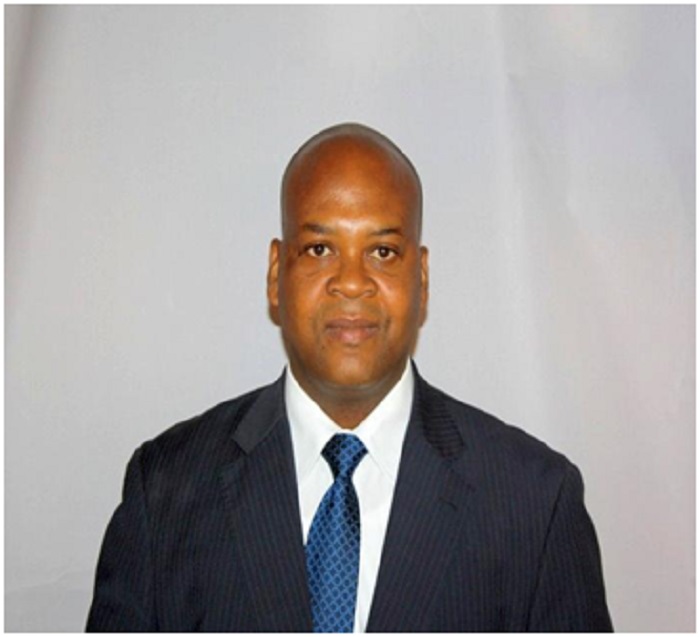



By Ogbonna Onyeisi, mni
Economic diversification has always been a national development slogan in Nigeria since independence. Successive governments in the country have constantly made policy statements in favor of economic diversification. However, the mantra of economic diversification became somewhat more pronounced after the crash of oil boom in 1970s when General Olusegun Obasanjo government initiated “Green Revolution” agricultural policy. The policy thrust of Structural Adjustment programme of President Ibrahim Babangida was based on diversification of Nigeria economy. Also, the objectives of NEEDs, SEEDs, and LEEDs of President Obasanjo were to drive Nigerian economic towards self-sustaining after many decades of relying on crude oil as a major source of foreign exchange revenue. According to Transformation Agenda of President Goodluck Jonathan which preceded the Seven-Point Agenda of President Yar’Dua, Nigerian economy must be transformed to become competitive and diversified through political, social, and infrastructural re-engineering and national re-orientation.
The vision to diversify Nigerian economy is as old as the nation itself. However, the current agitation for the diversification of the economy started after Nigeria, for the first time, since nationhood witnessed a transfer of power from ruling political party to an opposition party. Another motivation for the current agitation is the continued low prices of crude oil in the international market. The price of crude which has been the major sources of foreign revenue for Nigeria cashed from $100 a barrel to below $40 a barrel. The low price of the crude drastically reduced the foreign exchange earning of the country and affected the federal government allocations to states and local governments. As a result of short fall in federal allocations, many states were unable to pay salaries or fulfill its concurrent financial obligations. Almost every state started looking inwards to increase its revenue base. Even though, there is no constitutional provision for regional or zone economy, the current economic situation in the country is increasing geo-political economic concern as every geo-political zone is articulating how to harness its economic potentials through diversification policy.
The geo-political implication of policies towards diversification of national economy has led to increasing geo-political economic competition. Igniting long-held notion among Nigeria about regional competitiveness. While geo-political competition can lead to positive economic outcome, the experience of Nigeria during regional governments in 1960s which lead to unhealthy political rivalry and resulted to civil war call for caution as zonal economy interest increases. We, as Nigerians are good at manipulating good policy towards self interest that does do good to anyone. Geo-political zonal economic promotion should serve as a means which could help every zone to discover their area of comparative advantage. South West geo-political zone should serve as a learning compass for its successful zonal economic arrangement through Odua Investments. Most geo-political zones in the North, except North East which has been besieged by the insurgency are doing quite well in promoting agriculture through AREWA Group of Companies. The South-South zone with its BRACED Commission is a recent success story in the promotion of zonal economic interest. South East is a pathetic story when it comes to organizing group interest and that is affecting the zone in the structural equation in Nigeria. The zone has succeeded in cutting itself off not only economically but politically, culturally and socially in scheme of things in Nigeria.
It is not easy to ascertain the current level of competitiveness of South East geo-political zone in Nigerian economy, but it is obvious it has lost out in the stage. To make it worst, it is not doing much positively to ameliorate the situation. For instance, most states government in South East zone cannot function without monthly allocation from Abuja. What is them the zonal arrangement in place to increase internal generated revenues in the zone? South East is known as hub for palm produce or cashew nut in the 1960s. Currently, is there any zonal initiative to innovate the agricultural sector? Most industries and tourist centers established during Dr Michael Okpara regime in 1960s had been mismanaged by subsequent regimes. Where is the zonal industrial development policy or policy towards promoting tourism in the zone?
It is obvious, each state in South East has a comparative advantage in one sector of the Nigerian economy. Abia is known for garment manufacturing and oil producing state. Anambra State has position itself as an industrial incubator with the latest auto industrial development in Nnewi, pioneered by Innoson Group and others. Ebony has many untapped mineral deposits. Enugu is a coal city state and potential tourist destination, having maintained historical attachment by every south easterners and Igbo speaking people as the former capital of old Eastern region, East Central State and Anambra State. Imo state being an oil producer and a member of Niger-Delta Development Commission(NDDC), has potential in petroleum industry. South East Zone can compete favorably with other geo-political zone in attracting domestic and foreign investments.
The Oganiru Investment Summit initiated by Enugu Government under Rt Hon. Ifeanyi Ugwuanyi can be replicated in each state and the zone, through revitalizing the abandoned annual South East Economic Summit, a brain child of Enugu Chamber of Commerce, industry, Mines, and Agriculture(ECCIMA). ECCIMA should emulate the Lagos Chamber of Commerce and Industry(LCCI) and partner with state governments in the zone for economic development and diversification. Public and private institutions should be strengthened in the South East Geo-Political zone. However, before the zone can harness its economic potentials and assume its proper position in the economic sphere of the country, or being economy viable and competitive zone, it has to surmount her cultural, political, and social challenges.
The cultural challenge facing the zone is the abandonment of its cultural value system. The zone cannot continue to live with the illusion that “Igbo Enwe Eze”(there is no king in Igboland). The reality is that nature abhors vacuum in leadership. Society without leader does not thrive so long. Evidently, there is no rally point for Igboman and Igboland , in terms of traditional institution. The multiplicity of autonomous communities and traditional rulers in the South East Zone is not positive development as it has been abused and used as instrument of disunity. The traditional institutions as custodians of people culture should be transformed to assume its proper place in the heart of the people. Some Igbo historians like Dr Ferdinand Anikwe must be engage to come up with best approach to revive the Igbo generally-accepted cultural value. Also, the Onitsha traditional institution must be positioned and elevated to the status of Sultan of Sokoto, Emir of Kano Ooni of Ife, Oba of Lagos, Oba of Benin and others. HRM Igwe Nnaemeka Alfred Achebe(mni), the Obi of Onitsha, can be a rally point for South East traditional rulers. He can lead the much needed cultural interactions across the Niger and liberate the South East from socio-cultural isolation from the rest of the country. As far as the current Federal Republic of Nigeria structure is concerned, it will be difficult for the South East Geo-Political Zone to do it alone in the scheme of things in the country.
The political question in Nigeria is a serious issue for South Eat geo-political zone. Since the demise of Dr.Nnamdi Azikiwe, there has not been any political rally point for the people of the zone. Every political leader has been speaking for himself and pretending to be speaking for everyone. South East people became psychologically devastated after President Goodluck lost 2015 general election. That should not have been the case as people must always bear in mind that the greatest of all constant is change and nothing is permanent. Since 1999, the people of South East have occupied almost every strategic political positions in the country, why then should this temporary disengagement put the zone off-balanced? In the nutshell, what happened in 2015 was a political statement which will serve as lesson to the people of the zone and to the future leaders of this country. The outcome of that election depicts that peoples’ instincts and psychological aspirations must be explored to win people’s heart in political process.
The voting pattern at that election was not a hatred or admiration of a particular political leader but the vacuum created by lack of political leadership that would have influenced the people to make political statement they would not live to regret. In essence, it will be dangerous for any political leader to explored that situation for political disadvantage of the people. In the South East politics today, there is none who has political pedigree and has been a part of political process in Nigeria since 1999 like Senator Ike Ekweremmadu. He has demonstrated that he can lead the people of the zone and can assume the position of political rally point for the South East Geo-Political zone. Without any personal political sentiment, Senator Ekweremadu is fit to wear the shoe of Great Zik of Africa to fill the gap of the current political leadership vacuum for the South East people and unity of this country. However, Senator Ekweremadu should be ready to work collaboratively with the South East Governors Forum and other political leaders of thought in the zone.
In summary, through a critical analysis of how to make south east competitive in diversified Nigerian economy, issue such as the origin of economic diversification policy in Nigeria was revisited, followed by a considerations of the competiveness of other geo-political zones, the current agitation for economic diversification, the implication of the diversification for the national economy, and the challenges facing the South East zone in the national socio-political equation. The way forward, as recommended by this article is that the South East Zone should diversify its economy by looking inward and find ways and means of surmounting her cultural, political, and social challenges. To develop holistic approach towards positive interactions with other geo-political zones. Most importantly, the zone should learn lesson from the lives of Late Dr. Nnamdi Azikiwe, Sir Akanu Ibiam, Dr.M.I.Okpala and identify the current rallying point in the persons of Dr. Ferdnard Anikwe(a historian), Igwe Alfred Achebe, mni(a reputable traditional ruler), and Senator Ike Ekweremadu, the Deputy President of Senate. In addition, the unity and collective actions of the South East Governors, the political leaders, the private sector, and the academia are pre conditions for economic development and diversification of the zone.
Ogbonna S.Onyeisi is an economist and the Secretary, Alumni Association of the National Institute, (AANI) Enugu State. Contact: [email protected]
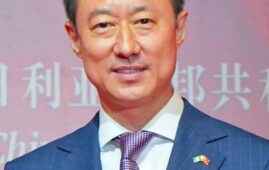

Not long ago, the Fourth Plenary.
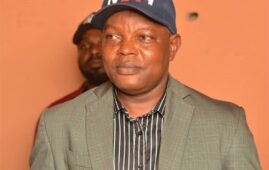

It is no longer news that.
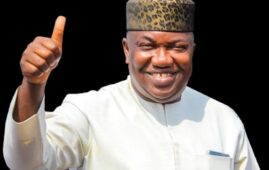


The Deputy Publicity Secretary of the.
On Democracy Day, the heads of.


As the world marks the International.
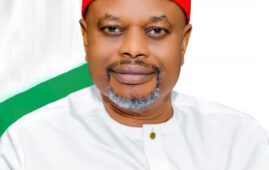

The Renewed Hope Agenda of the.



“For the vision is yet for.


The launch of the Nigeria Raw.
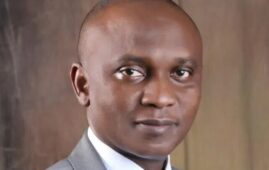

For every beginning, there must be.
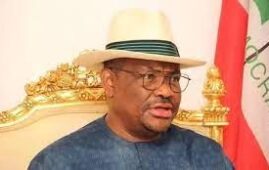

The Minister of the Federal Capital.
Leave a Comment